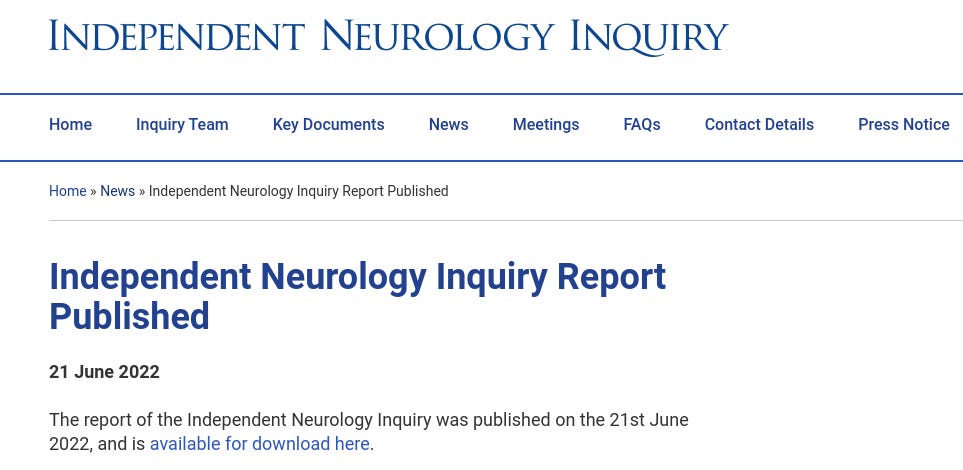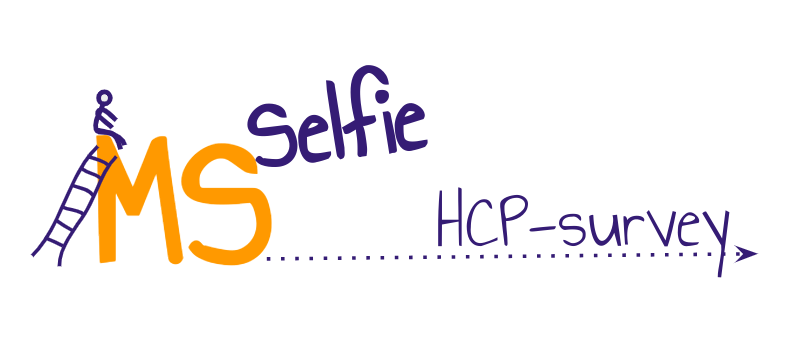I am speaking at the MS Trust meeting next Tuesday on smouldering MS, and I am running a seminar on multidisciplinary MS team meetings (MDTs).
For me to speak on smouldering MS is understandable it has been an issue I have been pushing for several years and is included in many of the media campaigns I am involved with (see list below).
#MS_is_1_not_2_or_3_diseases (MS is a biological disease, not a clinico-radiological construct)
#ThinkCognition (cognition is a very important domain in MS and should be considered as part of our treatment targets)
#ThinkSocial (tackling the social determinants of health, social isolation and loneliness in pwMS)
#ThinkHand (not to ignore hand and arm function in people with more advanced MS; when someone loses their ability to walk, their arms and hands become their legs, and arm and hand function is what keeps them independent)
#ChariotMS (trial of oral cladribine to protect upper limb function in people with advanced MS)
#OratorioHand (trial of ocrelizumab to protect upper limb function in people with advanced PPMS)
#ThinkCombination (the obvious need to move to combination treatment trials to tackle smouldering MS)
Why I have been invited to speak on MDTs is less understandable. The primary reason NHS England (NHSE) implemented MDTs was to try and reduce the problem of variation in prescribing DMTs across England. You may be aware that some centres prescribe so few high-efficacy DMTs, particularly alemtuzumab, whilst others prescribe a lot. Then many centres still prescribe a lot of platform injectable therapies (interferon-beta and glatiramer acetate) first-line. Malcolm Qualie, who was in charge of high-cost MS drugs for NHSE, was appalled by the data and wanted things to change. NHSE and Malcolm didn’t realise that even within centres, there is variation in prescribing, with one consultant neurologist doing one thing and another consultant neurologist doing something completely different. Why?
The practice of medicine is not necessarily a science, and for many, it remains an art. I know that many of you will find this strange, but how your MS is managed depends on who your neurologist is and their attitude towards treating MS and attitudes to certain DMTs. There will always be extremes, and having a national prescribing database with regular audits and feedback on the data to individual centres may eventually change the prescribing behaviour and reduce variation.
I have decided to structure my seminar around a series of questions, which I may add to if this newsletter generates more questions.

Q1: Does your centre have internal variation? If yes, how large is the variation? How do does your prescribing data look relative to other centres or the national average?
If you measure something, it should be looked at and acted upon. This is why we want and need an annual national audit with a dashboard so individual MS centres can see how they are doing in real-time. Before COVID-19 and my accident, we were trying to achieve this as part of our ‘Raising the Bar’ initiative, which I had to resign from after my accident. I did not have enough bandwidth to continue to run it. The audit is still meant to be happening, but we are all burnt out, and the energy levels around raising the bar have dropped. I call this the post-BREXIT and post-COVID blues or lethargy; sadly, this lethargy is infectious and needs to be treated.
Q2: Is your MS service slow at adopting innovations?
I personally think variation is a good thing because it may reflect a change in practice and the faster adoption of innovations by some centres and the slower adoption by others. I am asking the delegates how fast their adoption curve is for new innovations, particularly new DMTs. There will always be rapid and slow adopters and, frustratingly, some laggards. This is a fact of life, but pwMS need to know what kind of MS Centre they are being managed at. A centre that is at the forefront of MS innovation or one that is stuck in the past.
Q3: Is your MS service susceptible to groupthink?
Groupthink is a common problem in organisations and tends to happen when there is a dominant leader with rigid thinking, and the other group members follow their leader. The latter is called herd mentality. I know several MS Centres, mainly outside the UK, where this is the norm, i.e. one person dominates prescribing policy. In comparison, we at Barts-MS, and to the best of my knowledge in most UK MS centres, are not handicapped by groupthink or herd mentality. The NHS has a relatively flat clinical hierarchy in that juniors can question the clinical decision-making of their seniors without being chastised. In our MDT meetings, even the clinical nurse specialists have opinions about what treatments are appropriate and what treatments are inappropriate for their patients. It is often the nurses who know best.
Q4: How does your MS service deal with cognitive biases?
Cognitive biases are everywhere and affect both individual and group decision-making. The problem with cognitive biases is that you must put procedures in place to avoid them. For example, authority bias lets a senior person’s opinion be more valued than a less senior staff member who may know the patient better. Another one is false consensus, which happens often in our MDT due to time constraints. Everyone’s opinion should count. The cases when there is no consensus are the most important ones to focus on. Most of the time, it is about insufficient information to make a decision. If this is the case, the decision should be delayed until more information becomes available. Other biases that need to look for are the framing and halo effects and confirmation bias. The good news is that a well-structured MDT should have procedures to minimise the impact of cognitive biases on the decision-making process.
If any social scientists are reading this newsletter, you may have some ideas on what we can do to study the impact of cognitive biases on MDT performance.
Q5: Do you have a plan to deal with your manpower crisis?
Most MS centres are seeing an annual increase in MS case numbers of approximately 10%, driven by a rising incidence (new MS cases) and prevalence (total number of cases). This puts pressure on all the resources required to run an efficient MS centre, particularly MRI capacity, phlebotomy, infusion capacity, neurophysiology, lumbar punctures, admin time, MDT slots, etc. In an attempt to cope, we are considering turning away out-of-area patients. I know that one MS Centre in London is not taking on any new MS patients until they are given more resources. We may do the same. It is unfair to our local patient community when 60% of our new patients are out-of-area and should be covered by their local MS centre.
Most of our staff are burnt out, and the avalanche of new patients impacts staff retention and recruitment. When working conditions deteriorate, staff vote with their feet. Then there is the issue of safety. A large number of MS DMTs come with risks and quite stringent monitoring requirements; it is only a matter of time before something gets missed and patient safety is compromised.
You may ask, what have manpower issues got to do with an MDT? However, MDTs are part of our service and must be factored into our time commitment to manage patients effectively, safely, and with a quality of service we are proud of. A few years ago, Joela Matthews, our MS pharmacist, calculated that every patient that starts on a DMT or is switched from one DMT to another consumes between 6 and 8 hours of employee work time. This is quite a staggering figure, but nothing happens in clinical neurology that doesn’t cost time. For example, our weekly MDT lasts 45-60 minutes, and we may have about 12-16 people logged into each meeting; this costs the NHS at least 12 hours of employee work time per week. When you multiply this up across the country, you realise the costs associated with implementing MDTs across the NHS. And people wonder why healthcare inflation is so high.
Q6: How do you deal with treatment complexity? Are you limiting the choice of DMTs?
As you know, MS therapies' complexity has expanded massively in the last two decades. To counter this, some MS centres limit the choice of DMTs offered to their patients. Many of the case studies I cover on MS-Selfie make it clear that they are often only offered one DMT. In our centre, we try to provide more than one option to patients, but this is not always possible. Another thing that is happening is that some centres use subcutaneous natalizumab and subcutaneous ofatumumab exclusively to free up infusion capacity consumed by intravenous natalizumab and ocrelizumab, respectively. These centres also tend to be large prescribers of oral cladribine, which is even easier because it has a low treatment and monitoring burden. The question I ask is, should patient choice be compromised and impacted by these sorts of variables? I would be surprised if patients in these centres know the perverse incentives driving which DMT they can or cannot access.
A big issue that we are still grappling with in our progressive MS population is how aggressively we screen patients with primary progressive or secondary progressive MS for disease activity on MRI, which would make them eligible for ocrelizumab or siponimod. If we were proactive in doing this, it would have a massive knock-on effect on the rest of our MS services. We are currently doing this on a patient-by-patient basis, which will disadvantage some sections of the MS population we look after.
Q7: Do you have any bottlenecks in your service?
Previous local and regional audits have shown that patients with MS diagnosed and managed at a regional neuroscience centre start DMTs 6-9 months earlier than those diagnosed at the local district hospital. The delay is because these patients, after being diagnosed or partially diagnosed, must be referred to the regional centre to be assessed before starting treatment; this takes months in the NHS.
Our virtual MDT has now allowed our network of referring DGHs to present their cases directly to the MDT, and hopefully, many of these patients can start DMTs locally. However, this doesn’t always work with most infusion therapies from our centre. I am unsure if patients know the delays this has on managing their MS, which goes against our motto, ‘Time is Brain’. I suspect that the delay in accessing the more effective infusion therapies means these patients are likely to be offered less effective therapies first-line, which is a tragedy as we now know that flipping the pyramid now gives better average results than the slower maintenance-escalation approach.
Q8: Is infusion capacity a bottleneck in your service?
I have already addressed this issue above, but this is a problem in most centres, which is why some Pharma companies provide infusion nurses to NHS trusts to help relieve this problem. However, the manpower issues concern not just infusion nurses and infusion capacity but all the backup ancillary staff that need to support patients on these therapies. In my opinion, the biggest shortage we have relates to MS nurse specialists and administrative staff to manage the pharmacovigilance burden.
Q9: Do you know the theory behind why we have MDTs?
As with all NHS-driven service developments/requirements comes the theory of why they are important. The following slide summarises the nuts and bolts of MDTs. I am unsure if knowing the theoretical underpinnings of MDTs makes any difference to how they are run. I think the advantages and disadvantages of MDTs emerge and become clear once they have been running for some time.
Initially, we used to host MDTs every two weeks, but that was too infrequent, and it generated a backlog of cases. We now have a weekly MDT and augment it with asynchronous email exchanges for cases requiring an urgent decision. Our current MDT lasts 45-60 minutes, and we tend to limit it to a maximum of 10 patients and rarely extend the list to 11 or 12 patients. We have a short proforma, or minimal data set, that is required. Enough information should be available to make a decision without the named consultant being present. Our MDT used to be face-2-face, but since COVID-19 chased us online, we now do the MDT exclusively online. This is an improvement to the F2F meeting in that many more people can attend, including people from our linked DGHs. We have an MDT coordinator who prepares the weekly list and is responsible for typing up the cases afterwards and entering the information into the electronic patient record.
Q10: Who are the biggest winners from MDTs?
Both patients and HCPs are winners. Having an MDT with a defined methodology and membership, proformas, and documentation provides transparency that is available to patients on request. It protects the patient in that they have more than one HCP thinking and commenting about managing their disease. The process also protects the HCP from making mistakes and provides a supportive environment to learn and practice. I have little doubt that MDTs reduce the number of misdiagnosed patients. In almost every MDT I attend, one or two patients need additional rounds of investigations to get a correct diagnosis or to provide more information on the state of their MS. The latter is critical as some DMTs are only licensed for highly active and rapidly evolving severe MS.
I suspect that the practice of MS care will become gradually standardised over time via the MDT in terms of applying the NHSE guidelines. This does not mean the management of MS will become an algorithm. However, within the limits of the MDT, patients will know what type of MS they have, how active their disease is and what DMTs they are eligible for; and on top of this information, personal factors are taken into account to make individualised decisions.
A big advantage is the partial removal of some of the bottlenecks in the system that should allow patients with MS from DGHs earlier access to DMTs. Another plus of DMTs is their role as a teaching tool for HCPs to learn about the management of MS and how to apply the NHSE guidelines.
MDTs could be used as a formal teaching platform, which is underestimated, and I have not appreciated it until now. As most of our department logs into our MDT every week, we should explore extending the meeting by 5, 10 or even 15 minutes with a formal micro-teaching slot around important training issues. Our trainees and visiting fellows appreciate logging in and learning from case-based discussions. Some fellows who leave our centre still log in from abroad to continue learning about the management of MS.
MDTs also bring departments together and give them a sense of shared purpose. This is critical and should prevent the lone wolf phenomenon from occurring. A lone wolf is when a medical practitioner works alone and, over time, becomes hubristic and overconfident and starts making errors; misdiagnoses and incorrect treatment decisions. I know several lone wolves. The latest was Dr Michael Watt, a neurologist in Belfast who was recently taken off the GMC register. An independent inquiry found that “the Belfast Health Trust failed to intervene quickly enough in the practice of a doctor, which led to Northern Ireland's largest-ever patient recall. More than 5,000 former patients of neurologist Michael Watt were invited to have their cases examined for possible misdiagnoses. Among the conditions being treated were stroke, Parkinson's disease and multiple sclerosis (MS). The inquiry found numerous failures. The Inquiry concluded that the combined effect of the failures ensured that patterns in the consultant's work were missed for a decade.”
If you are interested, you can read the Independent Neurology Inquiry Report published on 21 June 2022. All I am saying is that the kind of MS prescribing mistakes that occurred in the Michael Watt case would not have happened had Dr Watt’s decisions or recommendations been scrutinised via an MDT.
Another advantage of MDTs is a wider choice for patients with MS. More often than not, we receive feedback that the options are wider than those recommended for a particular patient. This includes more licensed options and occasionally off-label alternatives (yes, we use off-label DMTs), participation in clinical trials and potential referral for AHSCT. If AHSCT were a treatment option discussed at all MDTs across the UK, we would get a much greater uptake of AHSCT nationally.
Another advantage that has yet to be leveraged at a national level is asynchronous decision-making and the breakdown of geographical boundaries. Why can’t Barts-MS support MDT for a group of hospitals in a remote area of the country without an established local MS service? This happens in other disease areas. When I visited the Western Isles a few years ago, the GPs on the Island were using a respiratory service in the South of England for advice on managing patients on the islands. The respiratory consultants in England did a daily ward round as a talking head on a robot. The head was an iPad. I suspect this geographical outreach of MDTs may be happening already. I would support it as it will reduce bottlenecks nationally, standardise MS care and hopefully raise the bar for all MS services. What do you think?
To the best of my knowledge, the one thing that has not been done yet with MDTs is a local and national database. Imagine creating a national online database of all cases discussed in an MS MDT. The data will allow us to study local, regional and national trends over time. We could provide much more granular data about variation in clinical practice, whether or not we are reducing inappropriate prescribing, the evidence for groupthink and potentially whether cognitive biases are impacting prescribing practice. After preparing my lecture for the MS Trust seminar next week, I feel MDTs are good. I now realise that we could leverage MDTs to substantially change how MS is managed in the UK.
These are some of my thoughts for next week. If I have missed anything, please let me know. I still have time to change the seminar and add additional content.
In addition to the above, if you are HCP, I would appreciate it if you could complete a survey we have open regarding gaslighting in MS clinical practice. We have already completed a survey among people with the disease but want to extend the observations to HCPs. The survey will take you about 2 minutes to complete. Your help is much appreciated. Thank you.
For those interested in what medical gaslighting is please read my previous MS-Selfie Newsletter on the topic (Gaslighting: an institutional problem; 25-Aug-2022).
Subscriptions and donations
Paid subscriptions to MS-Selfie are being used to administer the Newsletter and associated MS-Selfie microsite currently in development. At the request of several readers, I have now added the option of making a one-off donation. To keep this initiative open to all readers, I would appreciate it if those who can afford a subscription to subscribe. For active paying subscribers, thank you; your contribution is much appreciated. Because of the falloff in paying subscribers, I am considering returning to a paywall that will give paying subscribers six months of unlimited access to all newsletters. At the same time, free subscribers will have to wait to access the newsletters later as an email but on the substack site.
General Disclaimer: Please note that the opinions expressed here are those of Professor Giovannoni and do not necessarily reflect the positions of Barts and The London School of Medicine and Dentistry nor Barts Health NHS Trust. The advice is intended as general and should not be interpreted as personal clinical advice. If you have problems, please tell your own healthcare professional, who will be able to help you.
















Share this post